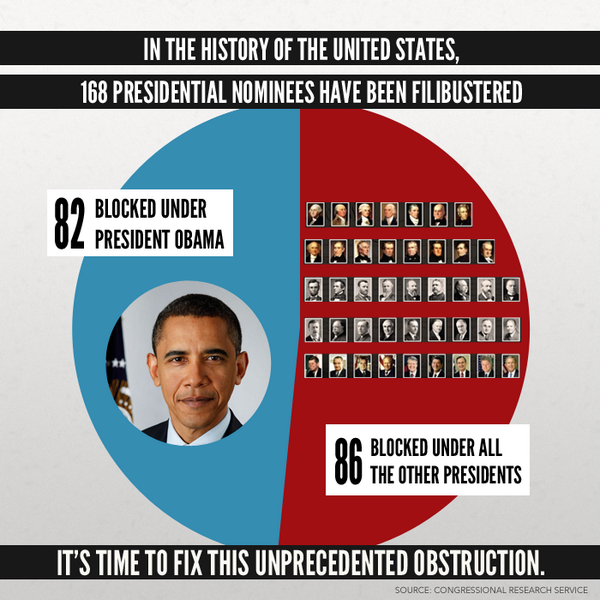“This week we found out how many people have signed up for Obamacare on the federal website. Out of 15 million uninsured, they signed up 26,794. To give you an idea, Wilt Chamberlain had sex with more people than that.” – Bill Maher
“So far, only 106,000 people have signed up for Obamacare. Even more disappointing is that it turned out to be one man who accidentally signed up 106,000 times.” – David Letterman
“How fucking hard is it to get a website to work? People keep trying to sign up; four hours later they’re on the seventh level of Candy Crush.” – Bill Maher
“Your chances of winning the big lottery are 250 million to 1. It’s the same as your chance of getting on the Obamacare website. It’s virtually impossible.” – David Letterman
“New Rule: Republicans have to stop saying that if the Obamacare website doesn’t work, that must mean Obamacare itself doesn’t work. That’s like saying the ice cream’s no good because you can’t find a spoon.” – Bill Maher
“The New York Times is calling this Obama’s Katrina. Which of course is great for George Bush. He loves this. He called up Obama today and said, ‘You’re doing a heck of a job, Brownie.'” – Bill Maher
“That is the difference between Democrats and Republicans. When Republicans shut down the government, it’s on purpose.” – Bill Maher
“For most Americans, Obamacare is a lot of like sex. You do it online, it’s incredibly frustrating and the idea of anyone getting it makes Republicans insane.” – Bill Maher
“President Obama apologized for this whole healthcare debacle. He said today, ‘We fumbled’. Well, a fumble is a turnover. That can happen to anyone. This is more like, ‘We told everybody we were good at football, but we actually really stink at football.'” – Jay Leno
“This was kind of tough week for liberals. First the 60 Minutes thing – they were bullshitting – and then Obama had to eat crow on Obamacare. I just want you liberals to know, you still have NPR, Whole Foods, and gay sex, so everything is not lost.” – Bill Maher
“According to a report released yesterday, over a million people in California are losing their health insurance due to Obamacare. I can’t believe that. There’s not a million people in California who have CAR insurance.” – Jay Leno
“Michele Bachmann claims that she has lost her healthcare plan. She said, ‘I have a husband with very significant health issues’. She said, ‘At some points we’re going to have to figure it out’. Girlfriend, there’s a lot about your husband you’re going to have to figure out. Healthcare is the last of your worries.” – Bill Maher
“Oamacare was trying to protect these people who are being ripped off by insurance companies. But, yesterday, Obama said, ‘Okay, you know what? You want your shitty, crummy plans? You can have them!’ You want your policy where you go in for an operation and you’re covered for when they cut you open, but not when they sew you up? Fine, children, have your broken piece of glass that you want to play with!'” – Bill Maher
“And one reason he had to do this was that Bill Clinton opened his big fat vegan mouth, and said Obama should let people keep their crappy insurance, even if screwed up the whole system. You know what? If you’re a Democrat, the Clintons are a pre-existing condition.” – Bill Maher
“I don’t blame Obama for being fed up. Today he said I’m taking a page out of Toronto Mayor Rob Ford’s playbook. He said, ‘This is not my fault. I was in one of my drunken stupors’.” – Bill Maher
“Toronto City Council yesterday stripped [Mayor Rob Ford] of his powers – whatever they are besides staying fat while smoking crack – because they found out that he was at a party recently where he did cocaine, vodka, OxyContin and apparently was cavorting with a prostitute. Rob Ford, always defiant said ‘Stop attacking my integrity! Anybody who knows me will tell you I am too shitfaced to get it up.'” – Bill Maher
“It’s another bad week for Rob Ford, the troubled mayor of Toronto. This week he said there may be more skeletons in his closet. More skeletons? I hope they’re just old chicken wings he threw in there.” – Craig Ferguson
“Toronto Mayor Rob Ford admitted he smoked crack while he was in office, but he’s refusing to step down. Despite all this, he’s announced that he’ll be hosting a TV show with his brother in Canada. It raises a lot of questions, starting with, ‘How can I get Canadian TV?'” – Jimmy Fallon
“Toronto’s city council voted 39-3 to strip Mayor Rob Ford of some of his powers. Here’s the amazing part. The mayor and his brother are being given their own reality show. That’s depressing, isn’t it? This maniac will have a TV show and I won’t.” – Jay Leno
“Rob Ford says he doesn’t really know if he’ll be a good TV host, but he’s willing to take a crack at it.” – Jimmy Fallon
“America Recycles Day is a special day. It’s the day that Al Gore lands on roofs with a reusable bag of kale for all the good boys and girls. He usually gets stuck in the chimney.” – Craig Ferguson



